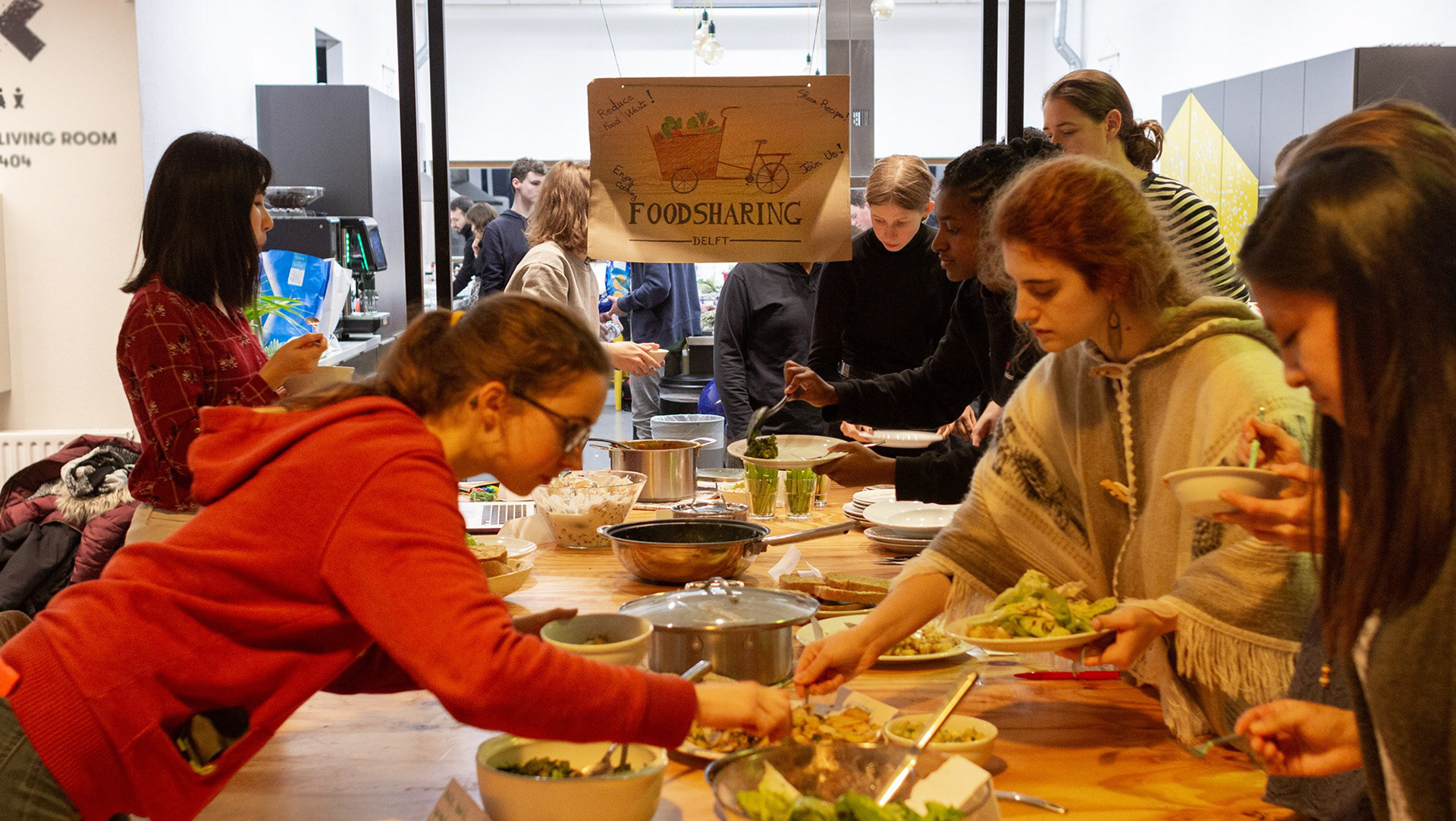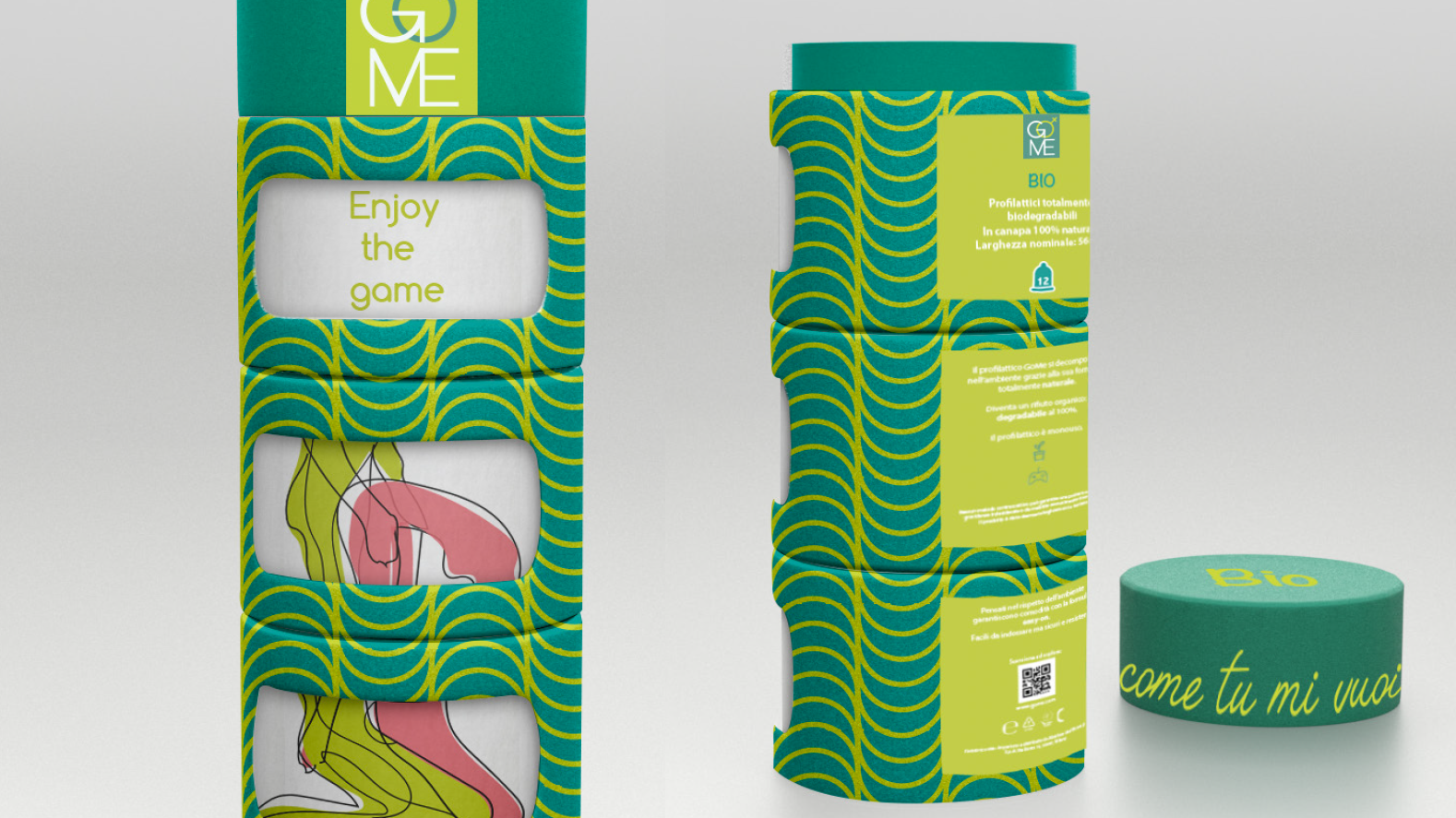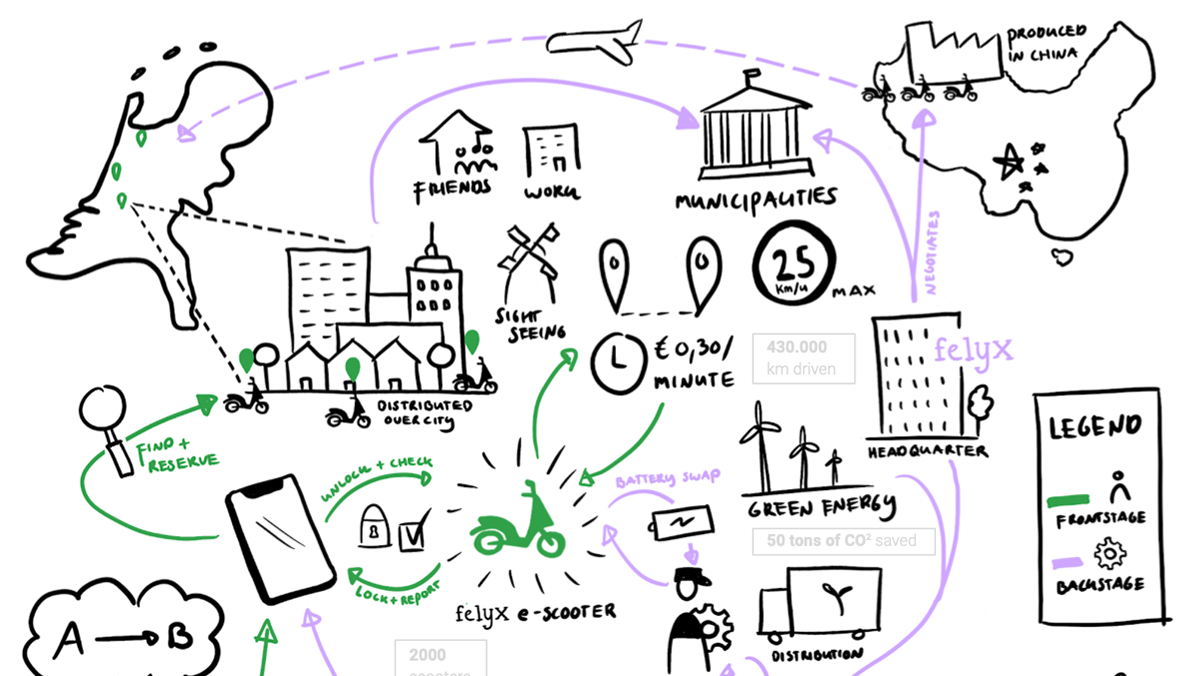A sketch of the current Business Model
The Value Mapping Tool (Bocken et al., 2015) has been adopted to help us better understand the positive and negative aspects of value captured, but also missed, destroyed or wasted in a network where multiple stakeholders are involved and to identify opportunities for the sustainable business model redesign – especially to improve societal and environmental impact.
The Business Model has been redesigned according to the new sustainable concept.
A circular B2B2C Model that involves multiple clients. In this sketch the singular food retailers are counted as partners of the food delivery services. Here Ozarka extended the network of clients and the containers get swapped by the service instead of relying on the consumer.
Concept Description:
Other than providing food retailers with takeaway reusable containers as it is in the current business, Ozarka will partner-up with food delivery services such as Deliveroo, UberEats, HelloFresh, Thuisbezorgd and others working in The Netherlands and provide them with the reusable food containers kit.
A sketch of the Concept 2 with hospitals like an example - A circular B2B Model where the consumer side has been cut out. There are no exchanges of values with the users who will just eat the food in the containers but with no control over them.
In concept 2, the customer relation is a partnership . Ozarka provides containers to the different businesses and ensures their permanent stock, the businesses pay back a rental fee and are in charge of the internal logistics of the service including pick them up, wash and sanitize them. In this way the model will be 100% circular.
Different scenarios for Concept 2


